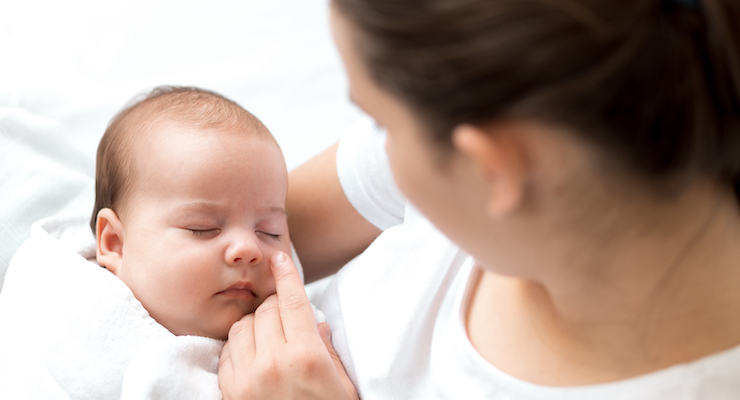Market Updates, Products & Ingredients, Research
Probiotic Shown to Benefit Infants with Colic
Colic, characterized by excessive crying, was reduced significantly by two bacterial strains in a randomized, placebo-controlled, double-blind study.

By: Mike Montemarano

Infant colic, known colloquially as excessive crying syndrome, is a common disorder in infants between the ages of one and five months. While it’s still unclear, research suggests that probiotics might have a role in attenuating excessive crying, and a new study which assessed daily oral supplementation of a probiotic blend, AB-Kolicare, manufactured by AB-Biotics, achieved significant results.
The randomized, placebo-controlled, double-blind study, published in the International Journal of Pharma and Bio Sciences, utilized the probiotic blend which contains the proprietary probiotic strains Bifidobacterium longum KABP-042 and Pediococcus pentosaceus KABP-041, in order to evaluate whether oral supplementation would affect symptoms of infantile colic.
The researchers for the study recruited 112 exclusively breastfed or mixed-fed babies and infants, and found that supplementation of the probiotic blend for 21 dasy resulted in significantly shorter crying and/or fussing time and less episodes of crying and/or fussing compared to the placebo group.
Although both groups showed a response, infants had more rapid responses to probiotic supplementation than babies by the first week (83% vs. 36%), and, while babies in both groups improved over time, probiotic treatment offered superior results by day 21. Furthermore, the probiotic formula also improved fecal consistency, the researchers noted, concluding that AB-Kolicare was an effective solution for the prevention and treatment of infant colic.
“Colic can be an extremely distressing experience, for both babies and their families,” Jordi Riera, chief business development officer of AB-Biotics, said. “Emerging research shows that babies with infant colic have a different microbiota composition than those without. For instance, the presence of Bifidobacterium – beneficial bacteria that digest dietary fiber, help to prevent infection, and produce vitamins – is just 0.3% in colic babies, compared to 10% in non-colic infants. This suggests that gut microbiota may play an important role in the development of the condition and explains why probiotics are being explored as a potential treatment due to their gut-strengthening properties. In this study, the probiotic solutio0n contained a strain of B. longum, which is a Human Resident Bifidobacteria (HRB) and one of the most common Bifidobacteria in healthy infants. This is significant since most other probiotic solutions for infants contain non-HRB such as B. animalis.”




















